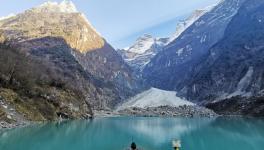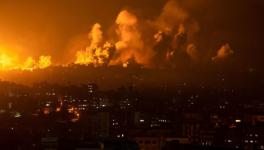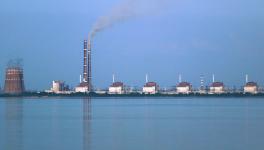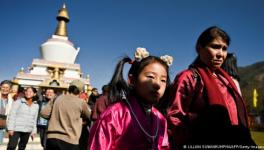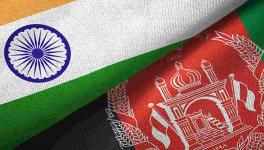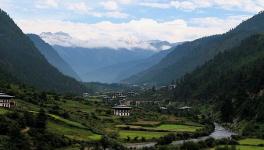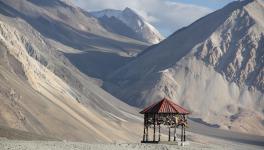Foreign Policy or Domestic Policy: What Did Bhutan Vote for?
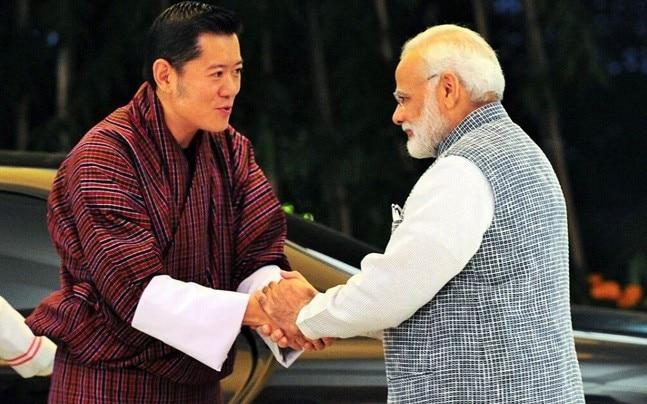
The primary round of Bhutan’s third national elections were concluded on September 15. Despite what commentators had predicted in the run-up to the elections, the ruling People’s Democratic Party (PDP) came up third in the race, which according to Bhutan’s Constitution means that they will not be able to contest the general elections on October 18. The party that formed the first government in the country, the Druk Phuensum Tshogpa (DPT) was first, while the comparatively new Druk Nyamrup Tshogpa (DNT) came in second. The two parties will face each other in the general elections.
Bhutan’s Polity
Article 15 of the Constitution of Bhutan deals with the functioning of political parties as well as the manner in which elections to the National Assembly are to be conducted. Section 5 lays down that the elections to the National Assembly should be contested between two political parties. In the primary round, all registered parties can contest, following which the top two parties will move on to contest the general elections. Under section 8, the party that wins the majority of the seats will form the government, while the other party will serve as the opposition.
The National Assembly functions as a lower house, whereas the National Council functions as the upper house. Unlike in the case of the National Assembly, members of the National Council cannot belong to any political party. However, the 25 members are elected by the voters of each Dzongkhag (province) on the basis of one member per Dzongkhag and an additional 5 members are appointed by the monarch in the National Council. The number of members from each Dzongkhag elected to the National Assembly, on the other hand, is on the basis of the population of each Dzongkhag. However, the minimum number of members allotted to each Dzongkhag is 2 and the maximum is 7.
Why the outcome?
There has been a lot of speculation following the PDP’s defeat. Some have attributed it to an anti-incumbency factor. However, as far as anti-incumbency goes, the PDP government has not done too badly considering the limitations Bhutan is faced with. Despite a host of hydro-power projects in Bhutan, ferroalloys feature higher in the country’s exports. But the majority of debt incurred by Bhutan is in hydro-power development which also includes construction materials. Despite this, a major problem facing the country is unemployment.
Also read: Why Assam Really Needs to Worry About the Flood
The DNT has taken up the issue of unemployment from this perspective and has promised to diversify the country’s exports, perhaps a similar idea to ‘Make in India’. Since the party president, Dr. Lotay Tshering is a urologist, another campaign promise was to ensure affordable universal healthcare.
Another factor that led to the PDP’s loss was the negative campaigning carried out by the PDP wherein aspersions were cast against the DPT. The negative campaigning took the shape of social media campaigning, when the PDP accused the DPT of acting against Bhutan’s interests, possibly an allusion to the fuel shock in 2013. If this negative campaigning was indeed taken up as an election winning strategy, it certainly backfired, which would indicate that a considerable portion of the population favours Bhutan being more assertive about its sovereignty.
In 2013, just before Bhutan went to the polls, the fuel subsidy India provides to Bhutan was abruptly stopped, leading to the price of LPG and petrol to skyrocket overnight. While India has maintained that it was due to a technical error, Bhutan perceived this to be due to India’s annoyance that the then DPT Prime Minister, Jigme Yozer Thinley was making overtures to China. This led to the PDP’s success in 2013 amidst accusations that India was meddling in the domestic affairs of Bhutan.
Another irritant was in April 2017, when India’s Border Roads Organisation (BRO) put up a sign board at the Paro international airport saying ‘Dantak welcomes you to Bhutan’. The BRO under Project Dantak has aided Bhutan in road building. The sign board was perceived as an affront and was removed after a public outcry. In June this year, the BRO once again landed itself in trouble when they placed reflective strips along the roads in the colours of the Indian flag. These colours did not go down well with the Bhutanese. though, these may have been the only colours that the BRO had available.
Also read: Is India China Standoff a Failure of Diplomacy?
However, possibly one of the major reasons for Bhutanese voters to worry about their country’s sovereignty was the Doklam standoff last year. The core of the issue was that the territory was disputed between Bhutan and China and negotiations were underway to resolve the matter. India’s unilateral move to block China from constructing a road may have been seen by the Bhutanese as an affront as much as it was to the Chinese. Further, considering that India very quickly stepped back from the disputed area and that the Chinese have continued their occupation of the plateau, this too may add to the perception that India is not quite a protector.
The general elections are still about a month away. Perhaps after the dust has settled, one may have a better idea of what Bhutan voted for. A DNT victory may indicate that the issue was a change of faces, whereas a DPT win may indicate a desire for greater assertiveness as a sovereign country.
Get the latest reports & analysis with people's perspective on Protests, movements & deep analytical videos, discussions of the current affairs in your Telegram app. Subscribe to NewsClick's Telegram channel & get Real-Time updates on stories, as they get published on our website.











